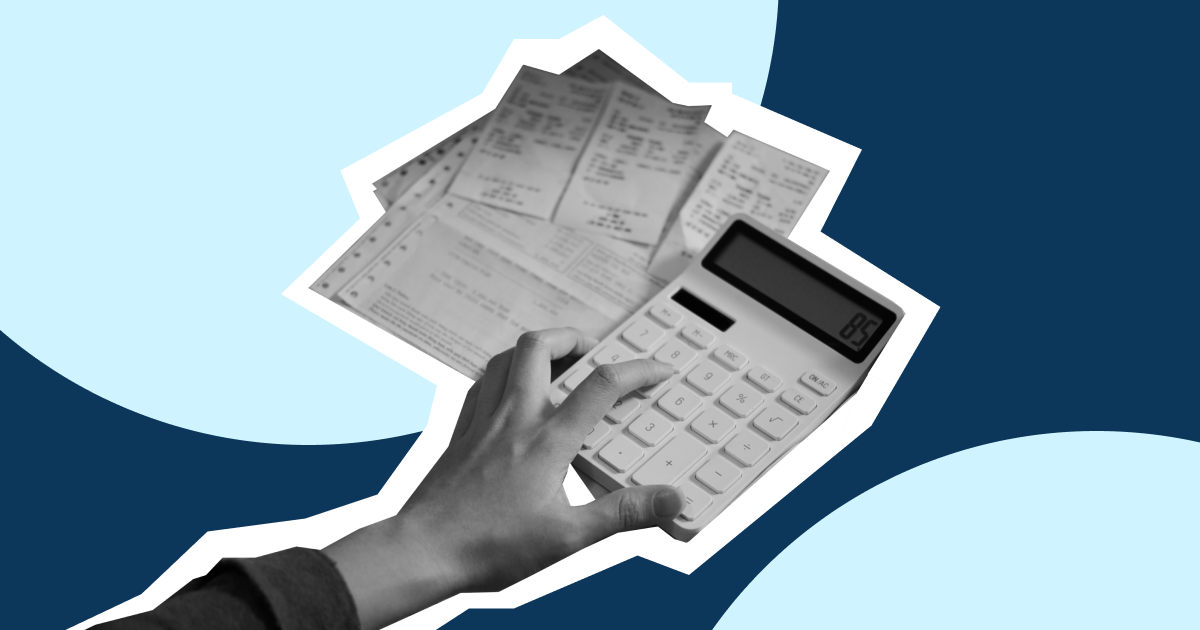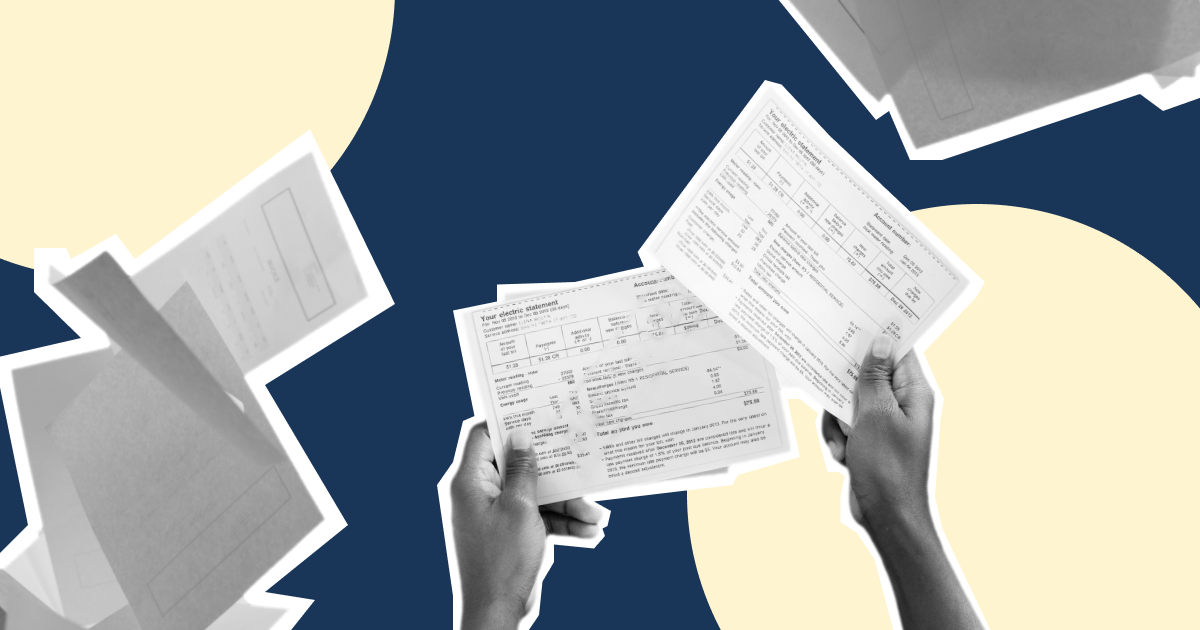Summary
Imagine you had a great quarter and thought of investing in a better office. Due to hidden or unforeseen due payments you end up with higher expenditure than you had expected.

It can happen if you focus only on account payables and overlook accrued expenses. These liabilities may look similar on the surface but are significantly different. They both are indicators of your company’s financial health, and overlooking these expenses can cost your business more money than expected, thus it is important for you to keep a tab on them.
Let’s understand how accrued expenses and accounts payable are different from each other and how you can manage them effectively.
Let’s understand accrued expense meaning with an example
Accrued expense is an expense that you record in your books before actually paying it. You incur it in one accounting period but don't have to pay it until the next one. An accrued expense is only paid upon receiving an invoice, and not upon consumption of goods or services.
Accrued expenses signify that the expense accumulates until you pay it. You settle the payment at the end of the billing cycle upon receiving an invoice.
Here’s the process of recording accrued expenses:
- You create an accrued expenses journal entry and add debit based on the account payable.
- Add your expense to the liabilities section on the balance sheet.
Tracking accrued expenses helps you keep tabs on your company's due expenses. If you overlook these expenses, you'll not know how much is due for payment, so you may over-extend your expenditure — a financially devastating situation for any company.
Accrued expense examples
Suppose your company receives utilities on March 28 worth $500. The supplier won't send an invoice until April 1 and you'll pay by the end of the month i.e. April 30. In this case, you must record an accrued expense of $500 as of March 30 to ensure that you've accounted for the expense of the current fiscal year.
Accrued expenses won't be considered payable until you receive the invoice for it. It would make your company seem more profitable on the balance sheets, and no expense will be deducted from the revenue for that quarter. Types of accrued expenses are below:
- Rent
- Employees' salary
- Loan Interests
- Taxes on earned revenue
- Future warranty payments
Let’s understand accounts payable meaning with an example
Accounts payable is the amount you must pay in the short term to your vendors or suppliers in exchange for a product or service. It's a short-term debt obligation that your company owes to creditors.
You record accounts payable when someone makes a purchase in your company’s name. Here’s how accounts payable works:
- The process begins when a vendor or supplier submits an invoice or bill
- Your Accounts payable team verifies the invoice and codes it into the general ledger
- After checking, they send the invoice for approval
- The invoice is paid
Since regular invoicing happens, companies maintain records of vendors and their invoices. The whole process involves receiving invoices, checking them, uploading them into an invoicing automation software, sending them for approval, and processing the payment.
Sometimes, the process includes solving vendors' queries and negotiation. These are fixed numbers of payments as invoices are already present - no surprises here.
Account payable example
Suppose you transport some goods to a retailer and the transport company sends a bill of $200 immediately for that. That's an account payable as the invoice is generated right after (or even before) you receive the service. You must settle that bill with the transport company on receipt or within a specified due date. Types of account payables are below:
- Transportation and Logistics Costs
- Raw Material costs
- Fuel costs
- Leasing
- Licensing
- Servicing
Accrued expense vs accounts payable
A balance sheet consists of assets, liability, and equity. Liabilities are further divided into two types of accounts: accrued expenses and accounts payable. Both are closely related but not the same. To manage both liabilities, you must understand how both of these accounts are different.
You can say that accrued expenses occurs before accounts payable as once the invoice is received, the expense is moved from 'accrued expense' to 'account payable'. The accrual accounting is a tag bit complicated but it's more precise and shows the true state of your finances.
Key differences between accrued expenses and accounts payable
Accounts Payable
- The amount that a company owes to its creditors for invoices that have been received
- Occurs only when your company purchases something
- It’s a short-term debt obligation that’s paid within the duration set by nominee
- Realised on the balance sheet whenever a purchase is made
Accrued Expenses
- A term used for expense for which invoice has not yet been received
- Consistent throughout the year like rent, wages and loans
- Paid upon receiving invoice at the end of a billing cycle
- Recorded on the balance sheet at the end of a billing cycle
When should you accrue an expense?
You can record income and expenses as per your choice. With cash basis accounting, you record all transactions upon receiving the money. With an accrual basis, you register a transaction when the work is completed, or payment is required.
In accrual-based accounting, you record an expense when you've earned it, not when money is transferred. You can record accrued expense’s journal entry if you haven't received an invoice. Record it for rent, wages, loan interests and taxes on earned revenue — expenses that you must bear consistently even if your company purchases nothing.
Tips to manage your accrued expenses and accounts payable
Both accrued expenses and accounts payable significantly contribute to your company's financial health. That's why companies have dedicated personnel to track and monitor these expenses.
But "to err is human." You need a strategy to manage both your account payable and accrued expenses — a process that each employee must follow so you don’t miss any detail. Below are tips for managing your accounts payables and accrued expenses:
Verify accrual invoices, vendors, and goods
Imagine receiving substandard delivery, the one with less products than you ordered. If you skip the verification process right then, it may cause trouble in the balance sheet later. Since nobody checked the products, the accrued expense will not match the product on hand, leading to accounting inaccuracies.
Later, when you find out about the missing items, you'll have to reorder them. You’ll also create another accrued expense for the new items. In this scenario, you created accrued expenses twice and may pay for even the missing items.

To avoid such problems, make sure you check that the expense you're recording matches the product you've received. Create a system to check all orders, so your balance sheets always contain the right information and you never make a wrong payment.
Segregate duties in the accounting department
You can't afford human error and fraudulent activities in the accounting department. If one person is responsible for verifying expenses, adjusting entries, and singing off payments, it leaves a lot of scope for fraud. Segregate these duties among multiple individuals so nobody has the authority to manipulate your expenses.
Track your due payments
To manage your account payable and accrued expenses, you must keep track of how much you owe and when the payment is due. It's hard for the accounting department to always stay on top of due payments. Get an expense management software to do it for you.
An expense management software, like Aspire’s, not only tracks your expenses but also integrates with your accounting software. so you can manage your budget and close your books faster. Tracking your due payments also prevents unnecessary expenses. When you know that you owe money to vendors, you'd hold back on extra expenditure.
Use automation
Use automation software to efficiently manage all your payables in an end-to-end payable management system. With a platform like Aspire, you can schedule or send multiple payments to vendors across the globe. Approve payments in advance to save the last-minute hassle.
An automation software lets you store vendor details and recurring requirements so you can access them easily. You can also automate your payment approval process and store all transaction receipts on one platform. You get a bird's eye view of your cash flow.
Reduce the room for human error and never miss any payment details or make double payments. An accounting automation software also integrates with your accounting software so you can manage bookkeeping faster.
Automate your account payable management with Aspire
Both accrued expenses and accounts payable are important for your company's financial health. They keep you updated about your due payments, so you manage your budget efficiently. Keeping tabs on these accounts saves you from redundant and missed payments.
But tracking these on paper can lead to confusion. Use Aspire's account payable management to automate accrued expenses and accounts payable management. Start your free trial today and join 10,000+ SMEs in faster and more efficient accounts payable management.










%201.webp)


.webp)